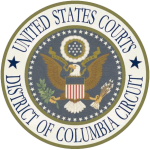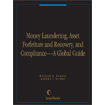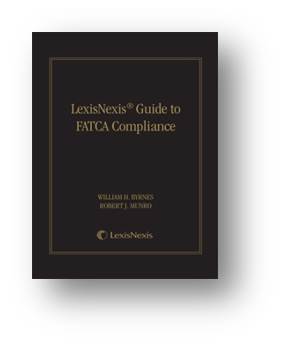On March 1st, 8th and 15th I have scheduled a series of FATCA articles to post. Please “email subscribe” to this blog on the left menu if you want to read the interesting FATCA updates, and other tax related news.
Today’s Hearing
I have just finished listening to today’s live 7 plus hour > hearing < (Wednesday, February 26) of the US Senate’s Permanent Subcommittee on Investigations on tax evasion associated with unreported bank accounts of Americans held at Credit Suisse. Below I paraphrase and excerpt the most intriguing statements.
Based upon its two-year investigation, the Subcommittee reported that Credit Suisse opened Swiss accounts for over 22,000 U.S. customers with assets that, at their peak, totaled roughly $10 billion to $12 billion. The Subcommittee stated that the vast majority of these accounts were hidden from U.S. authorities and that U.S. law enforcement officials have been slow to collect the unpaid taxes or hold accountable the tax evaders and bank involved.
Sen. Carl Levin, D-Mich., the subcommittee chairman said “The Credit Suisse case study shows how a Swiss bank aided and abetted U.S. tax evasion, not only from behind a veil of secrecy in Switzerland, but also on U.S. soil by sending Swiss bankers here to open hidden accounts. In response, the Department of Justice has failed to use the U.S. legal tools that won the UBS case and has instead used treaty requests for U.S. client names, relying on Swiss courts with predictably poor results. It’s time to ramp up the collection of taxes due from tax evaders on the billions of dollars hidden offshore.”
“For too long, international financial institutions like Credit Suisse have profited from their offshore tax haven schemes while depriving the U.S. economy of billions of dollars in tax revenues by facilitating U.S. tax evasion,” said Senator John McCain, ranking member of the subcommittee. “As federal regulators begin to crack down on these banks’ illicit practices, it is imperative that they use every legal tool at their disposal to hold these banks fully accountable for willfully deceiving the U.S. government and seek penalties that will deter similar misconduct in the future.”
Amount Recovered Thus Far from Non-Compliant Taxpayers
According to the GAO Reports and the Subcommittee report, the 2008, 2011, and the ongoing 2012 offshore voluntary disclosure initiative (OVDI) have led to 43,000 taxpayers paying back taxes, interest and penalties totaling $6 billion to date, with more expected. However, the vast majority of this recovered money is not tax revenue but instead results from the FBAR penalties assessed for not reporting a foreign account. The Taxpayer Advocate found that for noncompliant taxpayers with small accounts, the FBAR and tax penalties reached nearly 600% of the actual tax due! The median offshore penalty was about 381% of the additional tax assessed for taxpayers with median-sized account balances.
Have These Efforts Substantially Increased Taxpayer Compliance?
The Taxpayer Advocate, replying on State Department statistics, cited that 7.6 million U.S. citizens reside abroad and many more U.S. residents have FBAR filing requirements, yet the IRS received only 807,040 FBAR submissions as recently as 2012. The Taxpayer Advocate noted that in Mexico alone, more than one million U.S. citizens reside, and many Mexican citizens reside in the U.S. (and thus are required to file a FBAR for any Mexican accounts of $10,000 or greater).
Thus, at a current rate well below 10% compliance (because nonresident aliens in the US must file a FBAR on their non-US accounts of $10,000 and over), it appears that all the additional enforcement is producing similar results of the War on Drugs. This is not to say that obtaining a highly level of compliance with the tax law , like compliance with the drug laws and DUI laws, is not a public good in itself – it indeed is a public good that the public has chosen, via Congress (and its investigatory hearings), for resource allocation. But like the War on Drugs, there are many potential strategies to bring about compliance, about which pundits such as law enforcement officials, social libertarians, the medical profession, and all their paid lobbyists, debate.
Credit Suisse Statement to Subcommittee:
Credit Suisse is a global financial services company with operations in more than 50 countries and over 45,000 employees including approximately 9,000 U.S. employees in 19 U.S. locations. In the United States, Credit Suisse is a Financial Holding Company regulated by the Federal Reserve. The Bank has a New York branch, which is supervised by the New York Department of Financial Services, and we have three regulated U.S. broker/dealer subsidiaries. Our primary U.S. broker/dealer has been designated a Systemically Important Financial Institution under the Dodd-Frank law. We have a substantial business presence here in the United States.
Credit Suisse Exit of U.S. Relationships
Following our decision to prohibit former U.S. clients of UBS from transferring their assets to Credit Suisse, in August 2008, Credit Suisse promptly turned to addressing issues highlighted by the UBS situation. In October 2008, Credit Suisse decided to allow relationships with non-U.S. entities that had U.S. beneficial owners only if they demonstrated U.S. tax compliance. We hired a leading Swiss law firm to review the tax status of U.S. clients that wanted to remain. By the end of the first year of review, all but 135 relationships with assets over $10,000 had been reviewed and resolved.
In April 2009, we extended our review to U.S. resident clients. Credit Suisse transferred virtually all U.S. resident accounts to one of the Bank’s U.S.-registered affiliates, or terminated the relationships. Credit Suisse simply shut down those client relationships that were unwilling to move or that did not meet the $1 million requirement for transfer to the Bank’s U.S.-regulated affiliates. By the end of the first full year of review, 2010, we had reviewed and resolved more than 85% of U.S.-resident relationships with assets over $10,000.
To ensure that the review was comprehensive, we also manually searched for accounts that, although not identified in our systems as U.S.-linked, could possibly have some U.S. connection – for example, a U.S. phone number or address in the paper client file, or a notation of a U.S. birthplace on a foreign passport. Credit Suisse also reviewed the private banking activities of its subsidiaries, including Clariden Leu, which was a nearly wholly owned Credit Suisse subsidiary between 2007 and 2012. Clariden Leu’s review and exit projects paralleled the projects at Credit Suisse.
Credit Suisse also engaged one of the Big Four accounting firms to conduct its own review to assess whether the Bank had effectively identified the account relationships with U.S. links. This firm carefully analyzed the Bank’s efforts – with an intense line-by-line analysis of account information – and concluded to an extremely high level of confidence that Credit Suisse had identified the complete population of U.S. account relationships. The results of this substantial effort have been presented to the Subcommittee staff.
Subcommittee “Undeclared Accounts” Methodologies Unreliable
Credit Suisse repeatedly discussed with the Subcommittee staff the fact that it is impossible for us to know the tax status of assets previously held by U.S. clients if those clients did not disclose that information to the Bank. Unfortunately, the Subcommittee has chosen to speculate based on a number of “methodologies,” each of which is problematic and generates results that are, at best, unreliable. The Subcommittee’s need to reference three conflicting “methodologies” is an implicit recognition that accurate estimates of unreported U.S. client assets previously held at Credit Suisse cannot be made based on the actual information available to the Bank and to the Subcommittee.
8,300 Accounts under $10,000 FBAR Reporting Requirement
In any event, the Subcommittee assumes that every U.S. client account held abroad was undeclared. As discussed below, that is a demonstrably inappropriate assumption. Moreover, U.S. Treasury Department regulations required U.S. citizens to report foreign accounts only if the balance exceeded $10,000 at some point during the year. While the Subcommittee staff has mentioned 22,000 accounts, more than 8,300 had balances below $10,000 as of December 31, 2008.
6,400 Accounts for US Expats Residing in Switzerland
Troublingly, these estimates also lump in categories of accounts where there is every reason to believe that the client had a valid reason for holding a Swiss account. For example, the Subcommittee’s estimates of “undeclared” accounts include approximately 6,400 accounts held by all U.S. expats who would ordinarily have a need for some form of local banking services outside of the U.S. Again, it should not be ignored that most expats resided in Switzerland, and therefore had a particularly valid reason for maintaining a bank near their homes.
Finally, each of the three “methodologies” that the Subcommittee staff has raised is problematic for different reasons:
First Methodology No Factual Basis
The first method wrongly suggests that the number of accounts closed during the Bank’s
“Exit Projects” may be a proxy for “undeclared” accounts. The Bank’s “Exit Projects” revealed that U.S. clients left the Bank for various reasons. For example, Credit Suisse decided to simply shut down around 11,000 U.S. resident accounts when the Bank decided to stop having Swiss-based private bankers service U.S. residents and because those clients’ balances did not meet the $1 million requirement for transfer to the U.S. regulated affiliates. Those clients never had the opportunity to demonstrate tax compliance because their accounts were simply terminated. There is no basis factually to assume that all of these clients were not tax compliant.
Second Methodology Unsupported
The second method, the “UBS method,” is simply unsupported. This method proposes to estimate accounts by considering all accounts without Forms W-9 to be “undeclared” U.S. accounts. The absence of a Form W-9 alone in no way supports an inference that a client failed to report the account to the IRS, or that the Bank was aware that the client failed to do so. The Qualified Intermediary Agreement with the IRS required the preparation of a Form W-9 only if the client maintained U.S. securities. If the client did not maintain U.S. securities, a Form W-9 was not required. These are the IRS’s rules. Because this method does not consider whether the client maintained U.S. securities, it is inaccurate to assume that the account was maintained to evade U.S. taxes.
Third Methodology Inconclusive
Nor is the third method conclusive. The so-called “DOJ Estimate” recounts a figure of $4 billion stated in an indictment of certain Bank relationship managers. Because the grand jury’s proceedings are secret, neither we nor the Subcommittee have any basis to assess the grand jury’s methodologies.
Credit Suisse Assets Under Management
As to Assets under Management (AuM), it should be noted that our exit projects established that an approximate amount of $5 billion of AuM was reviewed and verified for tax compliance over the years. This number includes AuM transferred to our U.S.-registered entities or closed after tax compliance was established. In addition, approximately $2.25 billion AuM lost its U.S. nexus over the years. Finally, of the accounts that were closed over the years we simply have no basis to assume that all of them were undeclared.
It was discussed between the Senators and the representatives of Credit Suisse that the actual amount of AUM compared to Credit Suisse’s AuM was miniscule, and that such AuM contributed less than 1% to Credit Suisse’s profits. However, Senator John McCain, the minority ranking member, told the Credit Suisse representatives that, while small in the context of the bank, amounts of billions and the profits made therefrom, are large amounts to a American taxpayer if made aware of such conduct. While listening to the Senator’s assessment (and agreeing), I wondered why in contrast hundreds of billions of annual deficits up to nearly a trillion deficit, and 15, 17, perhaps 20 trillion of national debt don’t seem to phase the same taxpayer referred to?
Internal Investigation
Nor did we turn a blind eye to the past. On the contrary, we invested enormous efforts to achieve as much clarity as possible about whether, and to what extent, Credit Suisse employees had violated U.S. laws or helped clients do so. Credit Suisse asked external counsel to investigate any instances of past improper conduct fully. That investigation was broad and deep.
The U.S. law firm King & Spalding and the Swiss law firm Schellenberg Wittmer led the investigation, with help from a major accounting firm. The investigation reviewed all aspects of the Bank’s Swiss-based private banking business with U.S. customers. It involved more than 100 interviews of Credit Suisse and Clariden Leu personnel, from line-level private bankers to senior leaders of the Bank. The investigation reviewed the conduct of bankers across the Swiss private bank who had a number of U.S. clients or traveled to the United States.
The investigation identified evidence of violations of Bank policy centered on a small group of Swiss-based private bankers. That conduct centered on a group of private bankers within a desk of 15 to 20 private bankers at any given time who were focused on larger accounts of U.S. residents. Most of the improper activity was focused on some private bankers who traveled to the United States once or twice a year; otherwise, the investigation found only scattered evidence of improper conduct.
The investigation did not find any evidence that senior executives of Credit Suisse knew these bankers were apparently helping U.S. customers hide income and assets. To the contrary, the evidence showed that some Swiss-based private bankers went to great lengths to disguise their bad conduct from Credit Suisse executive management.
Cooperation with U.S. Authorities
Credit Suisse has consistently cooperated with the investigations led by the Department of Justice, the SEC, and this Subcommittee, going to the greatest extent permissible by Swiss law to provide information to investigating U.S. authorities.
Since early 2011, Credit Suisse has produced hundreds of thousands of pages of documents, including translations of foreign-language documents. Our representatives have met with the Department of Justice to help them understand the information we provided and to describe the findings of our internal investigation and the Bank’s various compliance efforts.
Credit Suisse has also provided briefings to officials from the U.S. government, including the SEC and this Subcommittee. That includes more than 100 hours briefing the Subcommittee staff on details of the private banking business and the internal investigation and thousands more hours answering written questions from Subcommittee staff. Specifically, Credit Suisse produced over 580,000 pages of documents, provided 11 detailed briefings to the Subcommittee staff in all-day, or multi-day, sessions, provided 12 substantive written submissions, and made 17 witnesses available from both the United States and Switzerland, including the Bank’s General Counsel, co-heads of the Private Bank and Wealth Management Division, and the CEO.
Credit Suisse Agrees to Pay $196 Million and Admits Wrongdoing in Providing Unregistered Services to U.S. Clients
In the February 21, 2014 Press Release by the US Securities and Exchange Commission (SEC) “Credit Suisse Agrees to Pay $196 Million and Admits Wrongdoing in Providing Unregistered Services to U.S. Clients“, Credit Suisse agreed to pay $196 million and admit wrongdoing to settle the SEC’s charges. According to the SEC’s order instituting settled administrative proceedings, Credit Suisse provided cross-border securities services to thousands of U.S. clients and collected fees totaling approximately $82 million without adhering to the registration provisions of the federal securities laws. Credit Suisse relationship managers traveled to the U.S. to solicit clients, provide investment advice, and induce securities transactions. These relationship managers were not registered to provide brokerage or advisory services, nor were they affiliated with a registered entity. The relationship managers also communicated with clients in the U.S. through overseas e-mails and phone calls.
Report Offshore Tax Evasion: The Effort to Collect Unpaid Taxes on Billions in Hidden Offshore Accounts
The 175-page bipartisan staff report released Tuesday February 25 outlines how Credit Suisse engaged in similar conduct from at least 2001 to 2008, sending Swiss bankers into the United States to recruit U.S. customers, opening Swiss accounts that were not disclosed to U.S. authorities, including accounts opened in the name of offshore shell entities, and servicing Swiss accounts here in the United States without leaving a paper trail.
Senator Carl Levin Statement
In his statement summary of the investigation of Credit Suisse, Senator Levin stated:
“…A bipartisan report we are releasing today cites chapter and verse of the failure to collect the taxes owed and to hold accountable the U.S. persons who evaded their tax obligations and the tax haven banks who helped them. To lay bare the problems, our report uses a detailed case study involving Credit Suisse.
“What we found was that Credit Suisse had been holding back about how bad the problem was at the bank. At its peak, in Switzerland, Credit Suisse had over 22,000 U.S. customers with accounts containing more than 12 billion Swiss francs, which translates into $10 to $12 billion U.S. dollars. Nearly 1,500 accounts were opened in the name of offshore shell companies to hide U.S. ownership. Another nearly 2,000 were opened at Clariden Leu, Credit Suisse’s own little private bank. Almost 10,000 were serviced by a special Credit Suisse branch at the Zurich airport which enabled clients to fly in to do their banking without leaving airport grounds.
“Although Credit Suisse policy was to concentrate its U.S. client accounts in Switzerland at a Swiss desk called SALN, which had about 15 bankers trained in U.S. regulatory and tax requirements, that policy was largely ignored. In 2008, over 1,800 bankers spread throughout the bank in Switzerland handled one or more U.S. accounts. One U.S. client told the Subcommittee about visiting the bank’s main offices in Zurich. The client was ushered into a remotely controlled elevator with no floor buttons, and escorted to a bare room with white walls, all dramatizing the bank’s focus on secrecy. The client opened an account after being told the bank did not require completion of the W-9; without that form, the account was not reported to U.S. authorities. In later visits, the client was offered cash withdrawals and credit cards to draw from the Swiss account while in the United States, and the client always signed a form ordering that the Credit Suisse account statements be immediately shredded.
“But the Swiss bankers didn’t stay in Switzerland. Like UBS, Credit Suisse bankers travelled across the United States. Ten SALN bankers alone took more than 170 U.S. trips from 2001 to 2008, to look for new clients and service existing accounts. Credit Suisse arranged for them to host tables at the annual Swiss Ball in New York and to host golf tournaments in Florida to prospect for wealthy clients. Some also met with as many as 30 to 40 existing U.S. clients in a single trip to attend to their banking needs.
“We learned of one Swiss banker who met with a U.S. client over breakfast at a U.S. luxury hotel, and slipped the client bank account statements in between the pages of a Sports Illustrated magazine. Although none of the Swiss bankers were registered with the U.S. Securities and Exchange Commission, many provided broker-dealer and investment advisory services for U.S. clients, resulting in the > $196 million fine that Credit Suisse < paid last week. Some Swiss bankers also advised U.S. clients on how to structure cash transactions to avoid filing reports of cash transactions over $10,000 as required by U.S. law. Other Swiss bankers helped U.S. clients set up offshore shell corporations to hold their accounts and hide the ownership trail. Some bankers lied on visa applications when they entered the United States, saying the purpose of their visit was tourism when in fact it was business.
“Once UBS’s misconduct was exposed, Credit Suisse initiated a series of so-called Exit Projects to close its U.S. client accounts in Switzerland. Those projects took five years, until 2013, to complete. In the end, the bank verified accounts for about 3,500 out of the 22,000 U.S. clients as compliant with U.S. tax law, meaning they were disclosed to the IRS. The bank closed accounts for the other 18,900 U.S. customers. It is clear that the vast majority – up to 95 percent – were undeclared, meaning hidden from Uncle Sam.
“So where are we now? Unlike UBS, U.S. enforcement action against Credit Suisse has stalled, even though the bank got a target letter three years ago in 2011. While seven of its bankers were indicted by U.S. prosecutors in 2011, none has stood trial and none has been the subject of a U.S. extradition request. Less than a handful of U.S. taxpayers with Credit Suisse accounts have been indicted.
“As you can see on this chart, of the 22,000 U.S. clients with Swiss accounts at Credit Suisse, the total number of accounts with U.S. names disclosed by the Swiss to the United States over five years hits a grand total of 238. That’s 238 out of 22,000, about one percent. Other Swiss banks with thousands of U.S. clients in Switzerland have, as far as we know, disclosed no names at all.
“By restricting itself to the treaty process, DOJ essentially handed over control of U.S. information requests to Swiss regulators and Swiss courts that rule on how they will be handled and have regularly elevated bank secrecy over bank disclosures.
“But the Swiss roadblocks didn’t end there. In 2009, right after the UBS battle, Switzerland agreed to amend the U.S.-Swiss tax treaty to replace its highly restrictive “tax fraud” standard with the somewhat less restrictive “relevance” standard. But the Swiss also insisted that the less restrictive disclosure standard be used only for information requests regarding Swiss accounts in existence after the amendments were signed on September 23, 2009. U.S. negotiators went along, and produced a new treaty standard that may be useful prospectively, but can’t be used for potentially tens of thousands of Swiss accounts employed for U.S. tax evasion before 2009. The end result is that the tax evaders and the Swiss banks who helped them may get away with wrongdoing.
“Here’s another rigged game. The U.S.-Swiss extradition treaty is supposed to enable each country to obtain the transfer of a criminal defendant from the other country. But that treaty has an exception giving the Swiss the discretion to deny an extradition request for a person accused of a tax offense. DOJ has indicted 38 Swiss banking and other professionals for aiding and abetting U.S. tax evasion. The indictment of the seven Credit Suisse bankers is already three years old. But 34 of those 38 defendants have yet to stand trial. Instead, most are openly residing in Switzerland. One Swiss banker who left Switzerland to vacation in Italy was recently arrested and is here and set to stand trial in October, but he’s the exception. It is bad enough that the Swiss can deny extradition for persons aiding and abetting U.S. tax evasion; it is inexplicable that the United States hasn’t even made extradition requests.”
According to the Subcommittee report, after the UBS scandal broke, Credit Suisse began a series of Exit Projects, and took five years to close Swiss accounts held by 18,900 U.S. clients, leaving just 3,500 U.S. customers still with the bank. Credit Suisse also conducted an internal investigation, but produced no report and identified no leadership failures that allowed the bank to become involved in tax evasion. Despite, in 2011, indictment of seven of its bankers and a DOJ letter notifying the bank that it was itself an investigation target, Credit Suisse has not been held legally accountable by DOJ, and none of its bankers has stood trial.
Despite earlier testimony pledging to use important U.S. legal tools such as grand jury subpoenas and John Doe summonses to obtain the names of U.S. tax evaders, the investigation found that DOJ had failed to use them, choosing instead to file treaty requests with little success. In the past five years, DOJ has not sought to enforce a single grand jury subpoena against a Swiss bank, has not assisted in the filing of a single John Doe summons to obtain client names or account information in Switzerland, and has prosecuted only one Swiss bank, Wegelin &Co., despite more than a dozen under investigation for facilitating U.S. tax evasion. In addition, over the past five years, DOJ has obtained information, including U.S. client names, for only 238 undeclared Swiss accounts out of the tens of thousands opened offshore.
Subcommittee Findings
The Subcommittee investigation reaches several findings of fact:
(1) Bank Practices that Facilitated U.S. Tax Evasion. From at least 2001 to 2008, Credit Suisse employed banking practices that facilitated tax evasion by U.S. customers, including by opening undeclared Swiss accounts for individuals, opening accounts in the name of offshore shell entities to mask their U.S. ownership, and sending Swiss bankers to the United States to recruit new U.S. customers and service existing Swiss accounts without creating paper trails. At its peak, Credit Suisse had over 22,000 U.S. customers with Swiss accounts containing assets that exceeded 12 billion Swiss francs.
(2) Inadequate Bank Response. Credit Suisse’s efforts to close undeclared Swiss accounts opened by U.S. customers took more than five years, failed to identify how many were undeclared accounts hidden from U.S. authorities, and fell short of identifying any leadership failures or lessons learned from its legally-suspect U.S. cross border business.
(3) Lax U.S. Enforcement. Despite the passage of five years, U.S. law enforcement has failed to prosecute more than a dozen Swiss banks that facilitated U.S. tax evasion, failed to take legal action against thousands of U.S. persons whose names and hidden Swiss accounts were disclosed by UBS, and failed to utilize available U.S. legal means to obtain the names of tens of thousands of additional U.S. persons whose identities are still being concealed by the Swiss.
(4) Swiss Secrecy. Since 2008, Swiss officials have worked to preserve Swiss bank secrecy by intervening in U.S. criminal investigations to restrict document production by Swiss banks, pressuring the United States to construct a program for issuing non-prosecution agreements to hundreds of Swiss banks while excusing those banks from disclosing U.S. client names, enacting legislation creating new barriers to U.S. treaty requests seeking U.S. client names, and managing to limit the actual disclosure of U.S. client names to only a few hundred names over five years, despite the tens of thousands of undeclared Swiss accounts opened by U.S. clients evading U.S. taxes.
Subcommittee Recommendations:
(1) Improve Prosecution of Tax Haven Banks and Hidden Offshore Account Holders. To ensure accountability, deter misconduct, and collect tax revenues, the Department of Justice should use available U.S. legal means, including enforcing grand jury subpoenas and John Doe summons in U.S. courts, to obtain the names of U.S. taxpayers with undeclared accounts at tax haven banks. DOJ should hold accountable tax haven banks that aided and abetted U.S. tax evasion, and take legal action against U.S. taxpayers to collect unpaid taxes on billions of dollars in offshore assets.
(2) Increase Transparency of Tax Haven Banks That Impede U.S. Tax Enforcement. U.S. regulators should use their existing authority to institute a probationary period of increased reporting requirements for, or to limit the opening of new accounts by, tax haven banks that enter into deferred prosecution agreements, non-prosecution agreements, settlements, or other concluding actions with law enforcement for facilitating U.S. tax evasion, taking into consideration repetitive or cumulative misconduct.
(3) Streamline John Doe Summons. Congress should amend U.S. tax laws to streamline the use of John Doe summons procedures to uncover the names of taxpayers using offshore accounts and other means to evade U.S. taxes, including by allowing a court to approve more than one John Doe summons related to the same tax investigation.
(4) Close FATCA Loopholes. To obtain systematic disclosure of undeclared offshore accounts used to evade U.S. taxes, the U.S. Treasury and IRS should close gaping loopholes in FATCA regulations that have no statutory basis, including provisions that allow financial institutions to ignore account information stored on paper, and allow foreign financial institutions to treat offshore shell entities as non-U.S. entities even when beneficially owned and controlled by U.S. persons.
(5) Ratify Revised Swiss Tax Treaty. The U.S. Senate should promptly ratify the 2009 Protocol to the U.S.-Switzerland tax treaty to take advantage of improved disclosure standards.
What is the Program for Non-Prosecution Agreements or Non-Target Letters for Swiss Banks?
The Tax Division of the Department of Justice > released a statement on December 12, 2013 < strongly encouraging Swiss banks wanting to seek non-prosecution agreements to resolve past cross-border criminal tax violations to submit letters of intent by a Dec. 31, 2013 deadline required by the Program for Non-Prosecution Agreements or Non-Target Letters (the “Program“). The Program was announced on Aug. 29, 2013, in a > joint statement < signed by Deputy Attorney General James M. Cole and Ambassador Manuel Sager of Switzerland (> See the Swiss government’s explanation of the Program < ). Switzerland’s Financial Market Supervisory Authority (FINMA) has issued a deadline of Monday, December 16, 2013 for a bank to inform it with its intention to apply for the DOJ’s Program.[2]
The DOJ statement described the framework of the Program for Non-Prosecution Agreements: every Swiss bank not currently under formal criminal investigation concerning offshore activities will be able to provide the cooperation necessary to resolve potential criminal matters with the DOJ. Currently, the department is actively investigating the Swiss-based activities of 14 banks. Those banks, referred to as Category 1 banks in the Program, are expressly excluded from the Program. Category 1 Banks against which the DoJ has initiated a criminal investigation as of 29 August 2013 (date of program publication).
On November 5, 2013 the Tax Division of the DOJ had released > comments about the Program for Non-Prosecution Agreements or Non-Target Letters for Swiss Banks < .
Swiss banks that have committed violations of U.S. tax laws and wished to cooperate and receive a non-prosecution agreement under the Program, known as Category 2 banks, had until Dec. 31, 2013 to submit a letter of intent to join the program, and the category sought.
To be eligible for a non-prosecution agreement, Category 2 banks must meet several requirements, which include agreeing to pay penalties based on the amount held in undeclared U.S. accounts, fully disclosing their cross-border activities, and providing detailed information on an account-by-account basis for accounts in which U.S. taxpayers have a direct or indirect interest. Providing detailed information regarding other banks that transferred funds into secret accounts or that accepted funds when secret accounts were closed is also a stipulation for eligibility. The Swiss Federal Department of Finance has released a > model order and guidance note < that will allow Swiss banks to cooperate with the DOJ and fulfill the requirements of the Program.
The DOJ’s November comments responded to such issues as: (a) Bank-specific issues and issues concerning individuals, (b) Choosing which category among 2, 3, or 4, (c) Qualifications of independent examiner (attorney or accountant), (d) Content of independent examiner report, (e) Information required under the Program – no aggregate account data, (f) Penalty calculation – permitted reductions, (g) Category 4 banks – retroactive application of FATCA Annex II, paragraph II.A.1, and (h) Civil penalties.
Which of Four Categories To File for Non-Prosecution Under?
Regarding which category to file under, the DOJ replied: “Each eligible Swiss bank should carefully analyze whether it is a category 2, 3 or 4 bank. While it may appear more desirable for a bank to attempt to position itself as a category 3 or 4 bank to receive a non-target letter, no non-target letter will be issued to any bank as to which the Department has information of criminal culpability. If the Department learns of criminal conduct by the bank after a non-target letter has been issued, the bank is not protected from prosecution for that conduct. If the bank has hidden or misrepresented its activities to obtain a non-target letter, it is exposed to increased criminal liability.”
Category 2
Banks against which the DoJ has not initiated a criminal investigation but have reasons to believe that that they have violated US tax law in their dealings with clients are subject to fines of on a flat-rate basis. Set scale of fine rates (%) applied to the untaxed US assets of the bank in question:
– Existing accounts on 01.08.2008: 20%
– New accounts opened between 01.08.2008 and 28.02.2009: 30%
– New accounts after 28.02.2009: 50%
Category 2 banks must delivery of information on cross-border business with US clients, name and function of the employees and third parties concerned, anonymised data on terminated client relationships including statistics as to where the accounts re-domiciled.
Category 3
Banks have no reason to believe that they have violated US tax law in their dealings with clients and that can have this demonstrated by an independent third party. A category 3 bank must provide to the IRS the data on its total US assets under management and confirmation of an effective compliance programme in force.
Category 4
Banks are a local business in accordance with the FATCA definition.
Independence of Qualified Attorney or Accountant Examiner
Regarding the requirement of the independence of the qualified attorney or accountant examiner, the DOJ stated that the examiner “is not an advocate, agent, or attorney for the bank, nor is he or she an advocate or agent for the government. He or she must provide a neutral, dispassionate analysis of the bank’s activities. Communications with the independent examiner should not be considered confidential or protected by any privilege or immunity.” The attorney / accountant’s report must be substantive, detailed, and address the requirements set out in the DOJ’s non-prosecution Program. The DOJ stated that “Banks are required to cooperate fully and “come clean” to obtain the protection that is offered under the Program.”
In the ‘bottom line’ words of the DOJ: “Each eligible Swiss bank should carefully weigh the benefits of coming forward, and the risks of not taking this opportunity to be fully forthcoming. A bank that has engaged in or facilitated U.S. tax-related or monetary transaction crimes has a unique opportunity to resolve its criminal liability under the Program. Those that have criminal exposure but fail to come forward or participate but are not fully forthcoming do so at considerable risk.”
106 Swiss Banks Seek Non-Prosecution from US Justice Department for Past Tax Evasion by Clients
106 Swiss banks (of approximately 300 total) filed the requisite letter of intent to join the Program for Non-Prosecution Agreements or Non-Target Letters (the “Program“) by the December 31, 2013 deadline. Renown attorney Jack Townsend reported on his blog on February 14th provided a list of 49 Swiss banks that had publicly announced the intention to submit the letter of intent, as well as each bank’s category for entry: six announced seeking category 4 status, eight for category 3, thirty-five for category 2. 106 was a large jump from the mid-December report by the international service of the Swiss Broadcasting Corporation (“SwissInfo”) that only a few had filed for non prosecution with the DOJ’s program (e.g. Migros Bank, Bank COOP, Valiant, Berner Kantonalbank and Vontobel).
See my other articles:
LexisNexis FATCA Compliance Manual
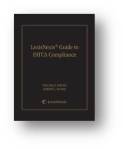 Fifty contributing authors from the professional and financial industry provide 600 pages of expert analysis within the LexisNexis® Guide to FATCA Compliance (2nd Edition): many perspectives – one voice crafted by the primary author William Byrnes.
Fifty contributing authors from the professional and financial industry provide 600 pages of expert analysis within the LexisNexis® Guide to FATCA Compliance (2nd Edition): many perspectives – one voice crafted by the primary author William Byrnes.
The LexisNexis® Guide to FATCA Compliance (2nd Edition) comprises 34 Chapters grouped in three parts: compliance program (Chapters 1–4), analysis of FATCA regulations (Chapters 5–16) and analysis of FATCA’s application for certain trading partners of the U.S. (Chapters 17–34), including intergovernmental agreements as well as the OECD’s TRACE initiative for global automatic information exchange protocols and systems. The 34 chapters include many practical examples to assist a compliance officer contextualize the regulations, IGA provisions, and national rules enacted pursuant to an IGA. Chapters include by example an in-depth analysis of the categorization of trusts pursuant to the Regulations and IGAs, operational specificity of the mechanisms of information capture, management and exchange by firms and between countries, insights as to the application of FATCA and the IGAs within new BRIC and European country chapters.
 what is driving account closure and how many customers, of which type, are affected. The FCA is also concerned as to whether ‘wholesale’ derisking and financial exclusion from the withdrawal of banking services is occurring, and if due consideration is being given to the merits of individual cases before a decision is made to terminate an existing account or not to grant a new account.
what is driving account closure and how many customers, of which type, are affected. The FCA is also concerned as to whether ‘wholesale’ derisking and financial exclusion from the withdrawal of banking services is occurring, and if due consideration is being given to the merits of individual cases before a decision is made to terminate an existing account or not to grant a new account.


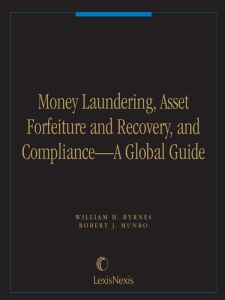
 Avoidance. These take forward HMRC’s strategy for tackling offshore evasion, No Safe Havens.
Avoidance. These take forward HMRC’s strategy for tackling offshore evasion, No Safe Havens.







